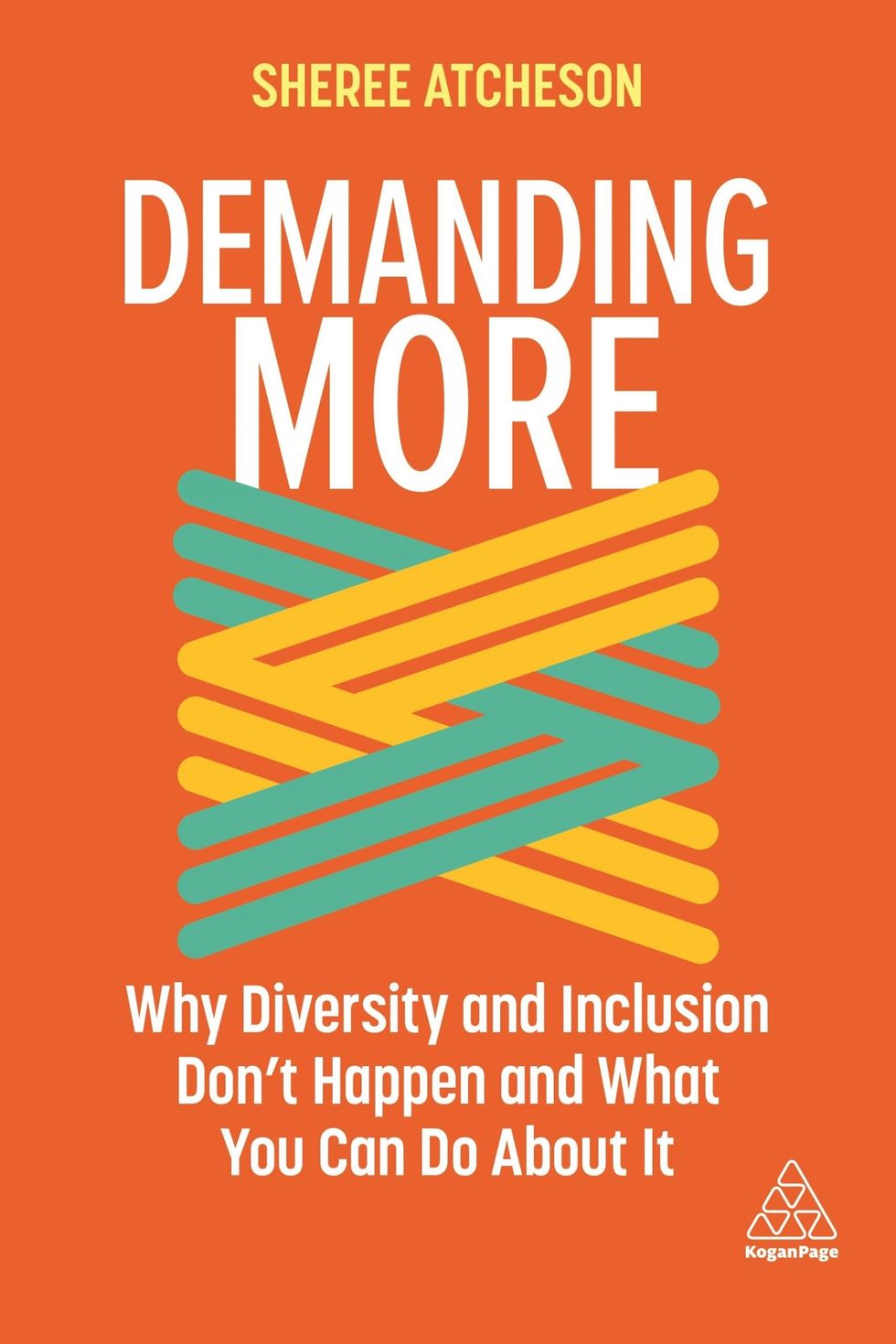by LAUREN CODLING
AN AWARD-WINNING diversity and inclusion expert has revealed insights into her personal and professional experience in the field, sharing stories of failure and success in her new book.
Sheree Atcheson is a recognised expert in diversity, equity and inclusion (DE&I). Currently the global director of DE&I at employee success platform Peakon, Atcheson has previously held similar roles at Monzo and Deloitte.
Atcheson’s book Demanding More is a culmination of her decade’s work in the DE&I field, she said. It covers a range of issues such as unconscious bias, intersectionality, allyship and privilege. Atcheson, 30, said she hoped the book was a way to help share lessons she learned, “the things I know that worked, but also the things I’ve seen which have failed to help people not make the same mistakes”.
Interviews with other business leaders are included too, to give additional perspectives on DE&I. Dell’s chief diversity and inclusion officer, Brian Reaves, and the CEO of Starling Bank, Anne Boden, are just two of the individuals featured. “(The interviews are) to give readers all of the different sides of inclusion – not only insights into my work, but also the way others have done it and how they have been successful in creating inclusive products and solutions as well,” Atcheson explained.

Atcheson started her career in tech, as a software engineer. At 22, she established herself in the tech world after founding the first UK branch of Women Who Code in Belfast. She was listed as one of the Financial Times Top 100 BAME Leaders influencing the tech sector in 2019.
Although she still sits on the board for Women Who Code, Atcheson is now mainly focused upon DE&I.
Using the transferable skills from her previous profession, she now applies a data driven mindset to DE&I issues. In the last few years of Atcheson’s career in diversity, she realised a lot of the work which was not data driven had been unsuccessful. Her own efforts are rooted in data analytics and understanding the truth as opposed to assumptions, the computer scientist said.
Demanding More is not just Atcheson’s professional story – it also offers insights into her own personal background and experiences. Although born in Sri Lanka, Atcheson and her brother were adopted when they were three months old by an Irish couple called George and Marian. She spent her early years growing up in County Tyrone in Northern Ireland (a predominately white area) and endured racist bullying as a teen. Her family were working-class and on benefits, with Atcheson and her brother relying on free school meals.

Her upbringing has given her a “very nuanced view of the world” and provided her with a personal understanding of privilege and underrepresentation, she said. Including her experiences in the book was an opportunity to share her vulnerabilities and personal story, which she believes makes it easier for others to consider their own backgrounds. “I don’t think I could do this work authentically, without really sharing that part of me because it’s my entire self,” Atcheson explained. “I don’t think it’s possible to separate.”
Atcheson also details the friction she has encountered throughout her career – partly due to the work she is trying to achieve, but also because she is a woman of colour.
Atcheson admitted there have been numerous occasions when she has felt “exhausted” by the pushbacks she has faced – especially in the early days of her career.
“(Despite the challenges), I am very much glad I didn’t give up – I would describe myself as pretty resilient, because of the upbringing I have had and because of the different career trajectories I’ve had, but it’s definitely not easy,” she said. “(DE&I) is changing ingrained mindsets and ingrained ways of doing things, which can be difficult.”
Asked if there is another diversity and inclusion book in the works, Atcheson laughed: “I’m not sure – but I did say to my partner recently that my book launch was coming up and his response was, ‘no, it’s your first book launch.’ So, I definitely think there could be something else in the future.”
Demanding More: Why Diversity and Inclusion Don’t Happen and What You Can Do About It by Sheree Atcheson is out now




